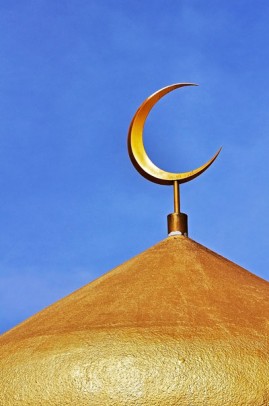Violence isn’t answer to anti-Islamic film, students say
 By Humaa Siddiqi
By Humaa Siddiqi
From violence in Syria to the discrepancies over Iran’s nuclear warfare, the Middle East has not seen much positive light lately.
A recent anti-Islamic film is causing more disturbance to the Muslim world. Written and produced by Nakoula Basseley Nakoula, the 14-minute clip was uploaded to YouTube in July 2012 under the title “The Real Life of Muhammad.”
The film depicts the Islamic Prophet Muhammad in a way that’s disregarded in the Islamic faith.
“Some of the actors say the dialogues they were given were different from the ones on the film; it is clear that the video was posted as a provocation to Muslims worldwide,” said Mustapha Kamal, clinical assistant professor of Arabic.
Since the video has been uploaded, it has caused upheaval across the globe. Hundreds of Muslims in the Sudan, Brazil, Hong Kong and France have held demonstrations demanding the removal of the YouTube video.
Some protests have turned violent, including one in Sydney, Australia, where dozens were injured after demonstrators clashed with police. In Greece, Muslims protested at the U.S. embassy by throwing stones, bottles and shoes at the building.
“When emotions run high, people are unlikely to listen to the voice of reason. Mobs are not known for their patience,” said Kamal of the violent protesters.
How do Muslim UIC students feel about the video?
“Islam says to be peaceful,” said Aiwan Hazari, a freshman in biology. “We should educate those who believe the movie is an accurate depiction of Islam. We should not be violent or lash out, but we should teach peacefully.”
Some think the film shouldn’t be taken as seriously as it has been.
“I’ve seen the video — parts of it. It was a very amateur video. It doesn’t look like it was anything professionally made,” said Muntaser Qutub, a senior in computer engineering and vice president of UIC’s Muslim Students Association.
“The people who made the video didn’t have to do any advertising — I believe the Muslims advertised the video. It was as if the producers hired the Muslims to do the marketing for them.”
“The video is very hurtful, but at the same time, there’s a lot of hate out there — what’s the point of protesting? It won’t make a difference. It’s just a short film. We, as Muslims, have to ignore it and improve on ourselves,” Hazari said.
Students agreed that there are more peaceful ways to protest.
“We’re supposed to stand up for our prophet, but how do we stand up for him? It’s through our actions, not meaning to punch someone or kill someone or bomb something. Our actions are to be peaceful and calm and have good etiquette toward others,” said Juvaria Shamsuddin, senior in education and president of the Muslim Students Association.
“There definitely is a peaceful way to protest, but the way you do it is not the way people think of protesting, which is marching out and holding banners,” Qutub said. “It’s having good character, having mercy on people, even the people who oppress you. That’s how my teachers taught me.”
The film is hurtful but shouldn’t have stirred the Muslim people as much as it did, Shamsuddin said.
“When you hear someone bashing or disrespecting your beloved, you’re going to react,” Shamsuddin said. “It’s a natural human emotion, but we need to be calm when we react. I would tell those violently protesting to read about that individual they are protesting about.
“When you read and learn about the prophet’s life they wouldn’t protest in such a matter. It just isn’t the way to react.”
• Humaa Siddiqi is a freshman in political science
